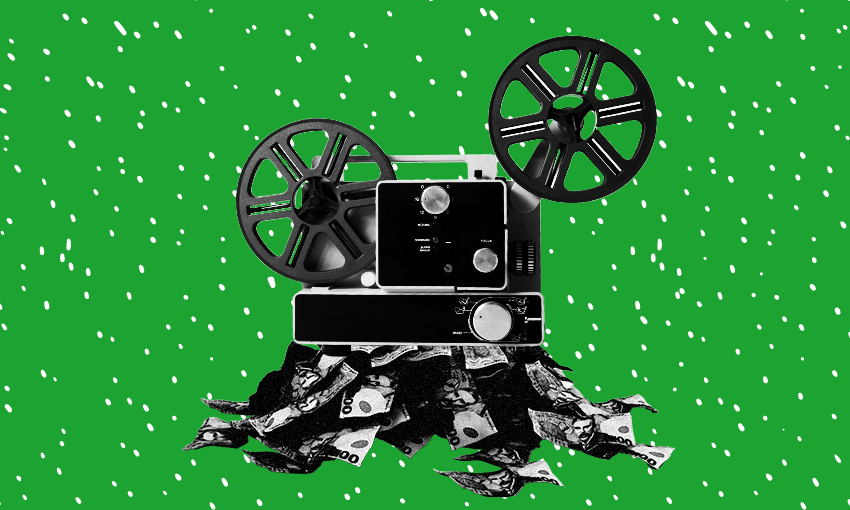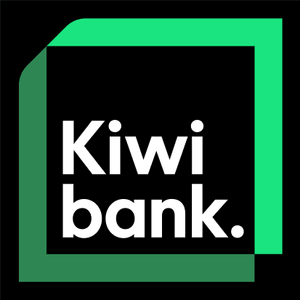The process of financing a film can be a complicated one, even if that film gets government funding. Kiwibank is helping to make it easier for New Zealand films to be made.
The skies above Arthur’s Pass are clear and blue when Emma Slade answers my call – but they weren’t supposed to be. It’s the first scheduled day of production for a new feature that the producer and co-founder of production company Firefly Films is working on, but an ominous forecast prompted her team to preemptively pull the pin on today’s shoot. While there’s a very slightly rueful note to Slade’s laugh as she acknowledges the “beautiful” weather which has instead greeted her on this autumn morning, it’s clear too that this sort of disruption is nothing new in her line of work.
There’s a degree of expecting the unexpected baked into any screen production, but in an industry as important – and expensive – as film has become in Aotearoa, there’s also a pressing need to sand back the sharper edges of that uncertainty. That need largely forms the basis for the New Zealand Screen Production Grant, a contestable fund administered by the New Zealand Film Commission which offers qualifying productions up to $6m to cover expenses incurred in the making of a local film.
It’s a programme which carries unquestionably high value for our filmmaking industry – the grants can cover up to 40% of the total costs for a production – but because it takes the form of a rebate, it’s paid in full only when a finished production is delivered. That small procedural wrinkle means producers like Slade, whose credits include high-profile films like Nude Tuesday, Mister Organ and The Justice of Bunny King, generally need to seek external up-front financing if they’re to transfer their vision from script to screen.
“There are organisations around the world that are set up to offer cashflow [for productions],” Slade explains, “and they particularly like initiatives like the Screen Production Grant, because for them government money is generally seen as the most secure of all. There’s minimal risk.” But while finding a willing party to front cashflow for a film production isn’t necessarily a tall order, Slade says offshore finance can often come at a price. “They charge really huge fees for their services, and that can often make it crippling, particularly for smaller projects.”
For Scott Overton, kaiwhakahaere arumoni / commercial manager at Kiwibank, that situation suggested a clear need – one that dovetailed with the bank’s mission of helping all New Zealanders to grow and achieve success. Initially prompted, Overton tells me, by a team member who had a particular passion for local film and saw an opportunity to help, Kiwibank worked with key industry figures to design and develop a set of specifically targeted financial facilities for our screen sector. The most significant of the products developed is one that finances cashflow for productions that qualify for the Screen Production Grant – at significantly lower cost than what’s generally offered by those international parties mentioned by Slade.
As Slade herself explains, it’s a product which has made a huge difference for businesses like hers. “[Before this], you’d be dealing with someone who’s in a different country – a different timezone – and you’d often be dealing with private finance.” While she’s eager to point out that these other parties weren’t necessarily unreliable, she says having a genuinely local partner offers significant peace of mind while also making the process feel a bit more predictable.
“I’ve done a lot of business with Kiwibank now – I’ve been working with them on productions for about eight years – so at this point I know that they’ll do what they say they’re going to do. They pay on time; they’re very transparent; their pricing is fair.”
Overton says building and maintaining that degree of trust with partners like Slade is crucial. “We’re conscious that we’re not the only provider of these facilities,” he says, “and we are just one cog in the wheel towards productions obtaining their total budgets.” With that in mind, he’s clear that Kiwibank’s ultimate obligation here will naturally extend well beyond that initial financing conversation – offering services like bespoke transactional accounts, and utilising the bank’s financial markets team to provide foreign currency positions for productions that also have money coming in from offshore.
Kiwibank works with a range of producers and production companies; Overton mentions Piki Films’ Carthew Neal as another with whom he’s formed a strong relationship over the years. With Piki’s latest release Red, White and Brass still spreading māfana energy – and seeing substantial success – at Aotearoa’s box offices, it’s more obvious than ever that local audiences want to support local storytelling.
For Overton, that success only reinforces the value of the bank’s work in this space – and the need to keep doing more. “With the flexibility and size of Kiwibank, we have the ability to move pretty quickly and make creative decisions with how we set policies,” he explains. “So we’re much more out there in the market, and we’re doing much more than we were four or five years ago.”
For producers like Slade, adjusting on the fly in an industry where schedules can be squeezed, plans derailed and budgets stretched by factors as seemingly arbitrary as an erroneous weather report, that diligence and conscientiousness can make a world of difference. To that end, as we prepare to end the call, I ask her how her working relationship with Kiwibank has evolved over time.
“There’s a shorthand there, and a trust, because we’ve both done what we said we were going to do. That enables us to move forward, and know that we can do business together again. To know that every time we do another job together, that trust will get stronger. And that trust is everything.”

